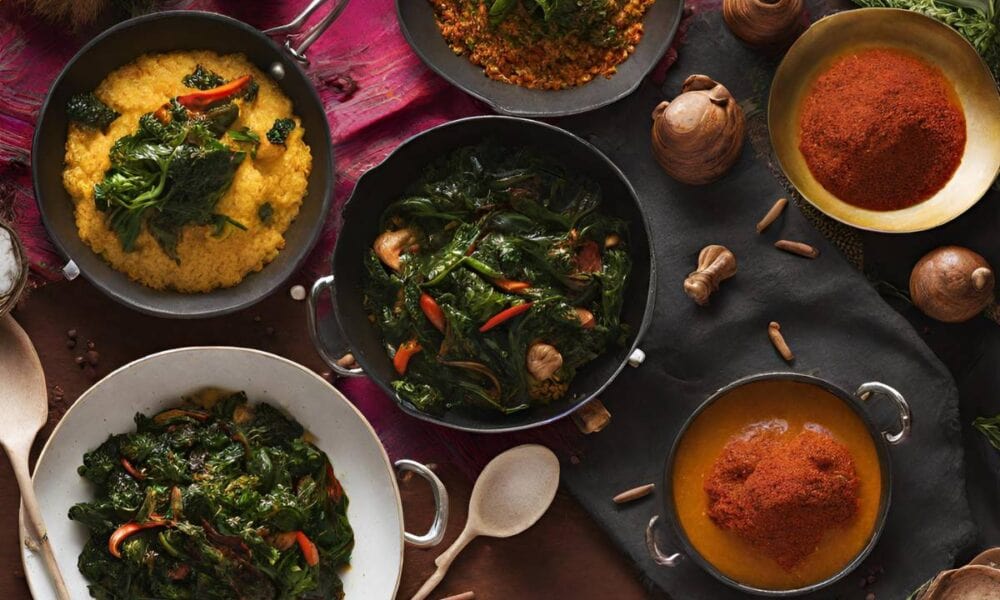Origin And Cultural Significance Of Buší
Buší has a long history rooted in ancient farming practices that go back hundreds of years. It’s not just a basic food; it holds special meaning in many cultures as a symbol of coming together and cultural pride.
People used to grow and eat Buší during important events like ceremonies and community gatherings, making it a part of their traditions and social bonds. Its importance in local customs and social unity shows how deeply it’s woven into the cultural fabric of different regions worldwide.
Culinary Evolution Of Buší

The culinary evolution of Buší spans millennia, adapting to changing culinary landscapes and evolving tastes worldwide. Initially cultivated for its practicality and resilience in diverse climates, Buší gradually became prized for its unique flavor profile and nutritional benefits.
Over time, it has transitioned from a traditional ingredient to a versatile culinary staple, featuring prominently in regional dishes and international cuisines alike.
Global Appeal And Culinary Tourism
Buší’s global appeal transcends geographical boundaries, attracting culinary enthusiasts and tourists alike to explore its rich culinary heritage. Culinary tourism centered around Buší offers travelers an immersive experience into local cuisines, traditional cooking methods, and the cultural significance associated with this esteemed plant.
Whether enjoyed in bustling markets or celebrated in culinary festivals, Buší continues to captivate and unite food enthusiasts worldwide.
Read: Pöversätt – Bridging Language Divides in a Globalized World!
Buší: The Plant
Buší, also known scientifically as Chenopodium quinoa, is a plant native to the Andean region of South America. It’s part of the amaranth family and has been cultivated for thousands of years by indigenous peoples like the Inca. Here’s a closer look at its characteristics and uses:
- Overview: Buší is celebrated for its nutritional richness, often hailed as a “superfood” for its complete protein content and abundance of essential nutrients like fiber, vitamins (B, E), and minerals (iron, magnesium, potassium).
- Cultural Roots: In Andean cultures, Buší holds deep cultural significance, symbolizing health and prosperity. It has been a staple in diets and plays a role in traditional ceremonies, reflecting its historical importance.
- Versatile Use: Buší seeds are versatile in cooking, used similarly to grains like rice or oats. They can be boiled, added to salads, soups, or used in baking. Buší flour is also popular for making pasta and gluten-free baked goods.
- Adaptability: Buší thrives in diverse environments—from high altitudes to dry plains—making it resilient against varying climate conditions. Its ability to grow with minimal water and pesticides supports sustainable farming practices.
- Global Impact: Beyond South America, Buší cultivation has expanded globally, contributing to food security and sustainable agriculture practices in regions like North America, Europe, and Asia.
- Environmental Benefits: Due to its low water requirements and minimal need for chemicals, Buší farming promotes environmental sustainability and soil health, aligning with organic farming principles.
Versatility And Integration In Cuisine

Buší’s culinary versatility shines in a variety of global dishes, seamlessly integrating into traditional cuisines and inspiring modern culinary innovations. From hearty stews to refreshing salads, Buší enriches recipes with its unique flavor profile, offering a savory and aromatic essence that enhances cultural authenticity and culinary creativity.
Chefs and home cooks value Buší for its ability to add depth and richness to dishes, making it a cherished ingredient in kitchens around the world.
Health Benefits And Environmental Impact Of Buší
Buší offers a range of health benefits and positive environmental impacts, making it a valuable addition to diets and sustainable agricultural practices.
Health Benefits:
Buší is rich in essential nutrients such as vitamins, minerals, and dietary fiber, which contribute to overall health and well-being. It provides a source of protein and carbohydrates essential for energy and muscle function.
Additionally, Buší contains antioxidants that help combat oxidative stress and support immune function, promoting longevity and vitality.
Read: Theapknews.shop Internet Services – Leading Innovations in Internet Services!
Environmental Impact:
Cultivating Buší promotes sustainable agricultural practices due to its ability to grow in diverse climates with minimal water and fertilizer requirements. Its deep root systems help prevent soil erosion and improve soil fertility, making it environmentally friendly.
Furthermore, Buší cultivation supports biodiversity by providing habitats for beneficial insects and wildlife, contributing to ecosystem health.
Cultivation And Sustainability
Buší cultivation focuses on sustainable farming practices that aim to ensure its long-term viability and environmental stewardship. Farmers use techniques like organic farming and crop rotation to improve soil health, conserve water, and reduce carbon emissions.
These practices not only promote agricultural sustainability but also help communities adapt to climate change and enhance global food security.
Medicinal And Therapeutic Potential

Traditional Medicinal Uses:
Buší has a rich history of traditional medicinal use across cultures. It was commonly used to alleviate digestive problems like stomachaches and indigestion. Additionally, Buší was relied upon to ease respiratory issues such as coughs and congestion, often brewed into teas or extracts for relief.
Its application extended to treating various skin conditions, where it was valued for its soothing and healing properties.
Therapeutic Properties:
Modern studies have highlighted Buší’s therapeutic properties, including its anti-inflammatory, antioxidant, and antimicrobial effects. These properties contribute to its potential in:
- Digestive Health: Buší is known to soothe digestive issues like indigestion and irritable bowel syndrome.
- Heart Health: Its high fiber content supports heart health by reducing cholesterol levels and promoting a healthy cardiovascular system.
- Immune Support: Buší’s vitamins and minerals strengthen the immune system, helping the body fight infections and diseases.
Ongoing Research:
Ongoing research into Buší explores its potential benefits in modern medicine. Studies are investigating how Buší can help manage chronic health issues like diabetes and hypertension. Additionally, researchers are looking into its use as a dietary supplement to support overall wellness.
These studies aim to understand Buší’s broader health impacts and its potential role in improving human health and well-being.
Future Prospects Of Buší
Looking ahead, Buší is poised to play a pivotal role in the future of global gastronomy, health, and sustainability. As consumer preferences shift towards nutritious, culturally authentic foods, Buší offers a compelling choice that meets these demands.
Ongoing innovations in cultivation techniques and culinary applications promise to expand Buší’s reach and impact, ensuring its continued relevance in a rapidly evolving culinary landscape.
FAQ’s:
1. What is Buší?
Buší is a traditional dish known for its rich flavors and deep cultural significance, originating from Vaucluse. It includes marinated meat, fresh vegetables, and aromatic herbs, creating a hearty and flavorful stew.
2. Where can I find authentic Buší?
Authentic Buší can be found at several renowned restaurants and eateries, such as Restaurant A, Eater B, and Diner C. For the best experience, consider asking locals for their recommendations.
3. Is Buší healthy?
Yes, Buší is generally considered a healthy dish as it contains a balanced mix of proteins, fibers, and essential nutrients, making it a nutritious choice.
4. How is Buší used in cooking?
Buší seeds are commonly boiled and used in salads, soups, and as a side dish similar to rice or oats. Buší flour is also popular for making pasta and gluten-free baked goods.
5. Is Buší environmentally friendly?
Yes, Buší cultivation promotes sustainability due to its ability to thrive in diverse climates with minimal water and fertilizer requirements. It helps improve soil health and supports biodiversity, making it an eco-friendly crop choice.
Conclusion:
Buší is a nutritious, versatile plant with deep cultural roots and significant health benefits. Its sustainable cultivation supports the environment while enhancing global cuisines. Embracing Buší combines tradition with innovation, promising a healthy future for food and farming.
Read More:



